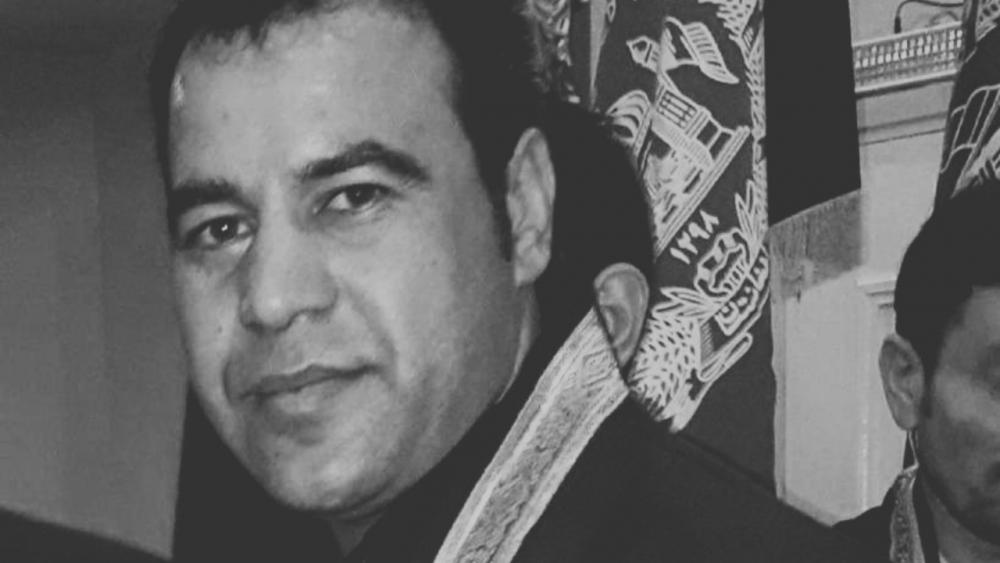The Magistrate from Afghanistan in Prison in Italy. "I'm No Boat Driver"
by Alessia Candito in La Repubblica (translated from Italian by Richard Braude)
When he was a magistrate, his accusations finished in the Taliban's crosshairs. But in Italy, the country where he sought asylum, he has been arrested on suspiscion of driving a migrant boat. And this time around, he lacks the tools, codes and language to defend himself. He cannot even claim his own name, which has been mangled in the official acts.
The story might seem like fragments from a tale by Kafka, a labyrinthine trial repeating itself in our millenium. But instead it is the true story of Ahmad Jawid Mosa Zada, magistrate in the Afgan High Court and since several months imprisoned in Catanzaro, Southern Italy. For the invetigators however, he is a people smuggler who exploited people's desparation for profit. As the prosecutor for the Court in Locri claims, he is one of five people who manned a fishing boat that left the Turkish cost on 26 May 2021, arriving five days later off the coast of Roccella Jonica, in the Italian region of Calabria.
There were 230 people on board. Men, women, children and teenagers, many of them without their parents. Ahmad Jawid was in the midst of this suffering mass, dizzy and confused after days in the motor room praying that the small boat would hold off the sea. When the motorboat from the Italian customs police arrived, he was convinced that the worst had passed. And yet it was still to come. Three people pointed him out, two Iraqis and a Syrian, all of them now impossible to track down. They were questioned by the investigators immediately after the disembarking; out of a pile of photographs taken of everyone who had crossed the sea with them, they picked out Ahmad Jawid's. "Boat driver".
Tired and confused when he was arrested, Ahmed Jawid tried to explain that there was a mistake, that he too had paid for the journey, and had paid a great deal, that there was even the receipt for the money transfer at home in Afganistan: €7,000, transfered through the money exchange service 'Ariana' in Baikh, Pakistan; "to be made effective only on proven arrival in Italy", reads the official translation. But language turned out to be an insuperable barrier. The arrest was confirmed by a judge and the Afgan magistrate ended up in jail.
He explained everything to his lawyer seven months' later - the time it took for the court file to reach Giancarlo Liberati, Ahmad Jawid's lawyer and the first person with whom he had the chance to speak about everything that had happened before the case arrived in court. "The first thing he did was implore me to call his wife", Liberati told us, "who hadn't had news from him for almost a year."
The magistrate's journey, in fact, had begun long before he boarded the fishing boat. The Taliban still hadn't taken power, but the American troops had pulled out and the country's future was uncertain. Ahmad Jawid knew that he was in danger. In 2018 he had already been the victim of an assassination attempt. As his lawyer explains, the Koranic students were never fond of him, nor had they even forgiven him for having participated on multiple occasions in the seminars on women's rights organized by the Asia Foundation. This is why he left Afghanistan, even before Ashraf Ghani's government collapsed.
Continuing by foot and hitching lifts, he managed to get to Iran and then Turkey, reaching up to the forests where the traffickers were waiting for him. He then spent days in ramshackle trucks before reaching the coast. It was a journey too arduous to bring his wife - Behishta Ebrahimi Mosazada - and their two young children, Tahura and Ahmad Sobhan, 6 and 7 years old respectively. Along with his brother and father, they remained in Mazar-i-Sharif, waiting - or hoping - for news. And to fight off their fears: of having lost him, of the Taliban, of the famine closing in on Afghanistan. The very same thoughts that, in another part of the world, were tormenting the magistrate, who feared for his family more than for himself, a captive in a prison from which the judge had refused to free him. "He told me that he still trusts in the justice system", his lawyer reports. "I hope that the court examining his detention does not betray this trust."

